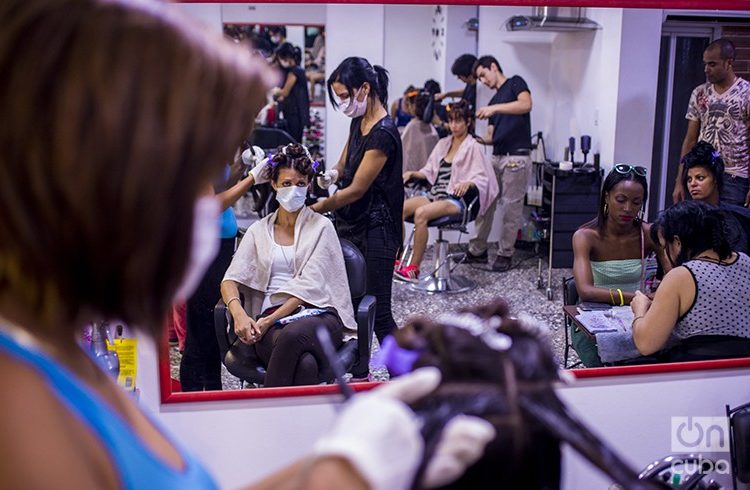Cuba is living a “veritable boom in the Cuban private sector” led by a new middle class with “high purchasing power,” according to a report by The Havana Consulting Group (THCG).
The report, drawn up by the president of THCG, Emilio Morales, notes that this new sector is the fruit of the thawing between Cuba and the United States and several domestic economic reforms on the island, and highlights that in its growth it has given a clear sign of “economic autonomy, great empowerment, innovative power and a tremendous force to generate wealth.”
Although still in a limited way, this new middle class has been able to establish “very successful and lucrative” business models in the period between 2010 and 2016, which range from the well-known “paladares” (private restaurants) and the rental of homes and rooms for tourism to beauty salons, cell phone repair workshops or the sale of footwear.
In 2016 the “paladares” became the most lucrative business modality, with 1,716 licenses granted and an estimated annual turnover of more than 693 million CUC, the Cuban convertible peso equivalent to the dollar according to the island’s domestic exchange rate.
The beauty salons came in second, with 17, 837 licenses and an estimated maximum turnover of some 120 million CUC, followed by the distance wholesale market and accommodations.
According to the June THCG Business Report, Cuban entrepreneurs who work in these and other modalities authorized for self-employment “have formed a very successful business fabric.”
Morales’ report highlights that the economic aid of the Cubans residing abroad has been a “key factor” in the development of the nascent private sector on the island, a market of goods and services that is estimated at between 2.5 and 3.8 million CUC a year.
Moreover, it mentions that the remittances sent by the Cuban diaspora decisively contribute to the sustainability of the “island’s dollarized retail commerce and its total value” and sets at 21.235 million dollars the cash received by Cubans between 2009 and 2016, with a 108.4 percent growth. Just in 2016, the remittances amounted to 3.444 million dollars compared to the 1.653 million dollars in 2009.
Morales also affirms that the economic opening started up by Cuban President Raúl Castro made it possible to expand the private sector to 201 modalities in an atmosphere of more flexible laws.
The report points out that some 535,000 Cubans working directly and legally in the private sector through licenses were reported at the close of 2016, compared to the 157,000 that did so in 2010. And he highlights the “meteoric growth” of national tourism, with 991,122 Cubans staying in hotels last year.
However, he recalls that the island’s entrepreneurs suffered limitations to develop and expand their businesses like the high taxes or the lack of wholesale markets to purchase goods, and underlines the weight the state sector presently has in the Cuban economy.
He specifies that the Armed Forces “control strategic sectors” of Cuba like 85 percent of the retail market, 40 percent of the hotel sector, the Mariel Special Development Zone and 27 percent of the ETECSA telecommunications enterprise.
The enterprises linked to the island’s armed forces and intelligence services are the principal target of the new U.S. policy toward Cuba, announced by President Donald Trump on June 16 in Miami.
According to the press release issued by the White House, the new policy channels the economic activities outside the Cuban military monopoly, GAESA, including the majority of the transactions related to trips, allowing U.S. persons and entities to develop economic links with the private sector and small enterprises in Cuba.
However, numerous entrepreneurs and private owners on the island have shown their concern over Trump’s measures since they fear that the announced restrictions will have a negative influence on their businesses. A study published on the Cuba Posible website forecasts that the Cuban private entrepreneurs directly related to tourism could stop earning up to 21 million dollars in the second semester of 2017.










